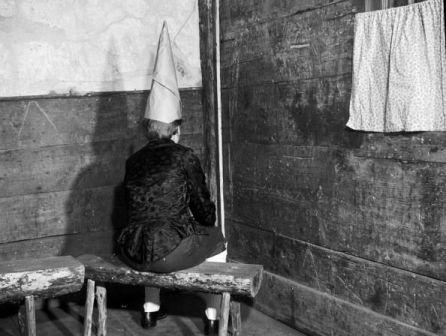
In our view, it is an appalling position that, in Minnesota, for claims arising in the context of litigation (rather than arising in the context of transactions), for plaintiffs to prevail in a legal malpractice claim against their lawyers, they supposedly must prove that “but for” their lawyers’ malpractice they would have won the underlying lawsuit.
Superficially, this makes a lot of sense. Imagine Minnesotans going through countless lawyers rejecting their cases because their cases are weak, finding one who takes the case on (because the lawyer is desperate for work (“the HUNGRY LAWYER”)), and then the Hungry Lawyer blows past the statute of limitation. Shouldn’t the HUNGRY LAWYER be able to defend any malpractice lawsuit against him arguing, “The case was a loser from the start…. I cannot be liable for losing a lawsuit that was going to be loser regardless of my negligence.” (In fact, Hungry Lawyers might argue that they saved the hopeless clients money because, otherwise, their clients’ lawsuits would have dragged on, imposing fees or at least costs, if the lawyer had not missed the statute of limitation (and the hopeless clients would have lost ultimately anyhow.)) (The HUNGRY LAWYER, incidentally, tends to be working on a contingent fee.)
But go deeper/think more.
Imagine a potential client who goes through countless lawyers who advise the client: “You have no case. You should not bring this lawsuit” (or “You have no defenses. You should pay the money you owe.”) and then the potential client finds one lawyer (“the BAD LAWYER”) who says, “You have a great case! I will win you tons of money!” (or “You have great defenses! We will win this lawsuit!”). (The BAD LAWYER almost always gets paid by the hour.)
Or imagine this: BAD LAWYER takes on a “slam dunk” case, rejects many generous settlement offers (>$1 million), takes the case to trial, billing fees of >$200,000, but only “wins” a jury verdict of $4.50.
Is the BAD LAWYER in these hypotheticals immune from a legal malpractice case? Some would answer, “Yes,” under Minnesota law. The disappointed client in a claim against the BAD LAWYER could not show, “‘but for’ their lawyers’ malpractice they would have won the underlying lawsuit.” (Or, in the second scenario, the disappointed client could not win their malpractice case because they did “win” the lawsuit (so they couldn’t show, “but for the lawyer’s malpractice, they would have won the lawsuit…”). Rather, these disappointed clients could merely show: “if it weren’t for the BAD LAWYER….if I had been properly represented by a competent lawyer…I would have ended up in a far better place than I did.”
Why does Minnesota law protect the BAD LAWYER? Will the Minnesota Supreme Court fix this?
We won’t be cynical and posit theories to answer the first question. As to the second, however, one would hope the Minnesota Supreme Court will fix this and it has a chance to in Reichel v. Wendland Utz.
The Reichel case started with a lengthy and bitter fraternal fracas between Mr. Craig Reichel (represented by the Wendland Utz law firm) and Mr. Reichel’s brother, Bryan Reichel. In connection with that bloodbath, after the fact, Craig took the position in his malpractice lawsuit against Wendland Utz, “if his ‘legal representation would have done the right things, that it never would have escalated to the point it did.” (See here at p.5.) In other words, Craig alleges he was a victim of BAD LAWYER (see above).
But the district court ruled that Craig could not prove this element because “the ultimate result” in the underlying litigation “was favorable” to him. Craig’s lawyers in the malpractice case argued that his attorney’s alleged negligence “required significant corrective fees.” The trial court (and the Court of Appeals) held that Mr. Reichel failed to state a malpractice claim because of the “but for causation” requirement. (Mr. Reichel, incidentally, seeks $750,000 in attorney fees allegedly to repair the harm caused by his lawyers’ negligence. (See here at p.1).) (Here is the law firm’s opposition to Mr. Craig Reichel’s petition for reivew by the Minnesota Supreme Court.)
Not having any knowledge of the evidence, we take no position as to whether the Wendland Utz firm committed malpractice in its representation of Mr. Craig Reichel or his business entities (though we will note, as an aside, that Mr. Reichel’s malpractice counsel, Mr. Charles Bird and Wendland Utz’s lawyers at the Bassford Remele law firm are excellent and deeply experienced Minnesota litigators).
But, while taking no position as to the claims against Wendland Utz firm in this particular case, Minnesota legal malpractice law has no business insulating BAD LAWYERS from liability for professional malpractice. We can stand on that proposition unequivocally and can only hope the Minnesota Supreme Court will, as well.
